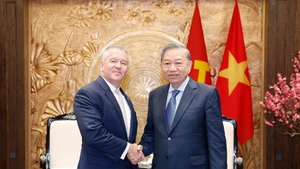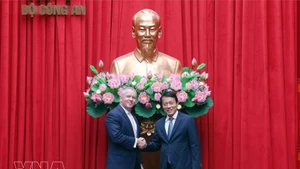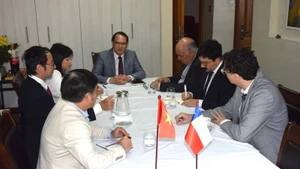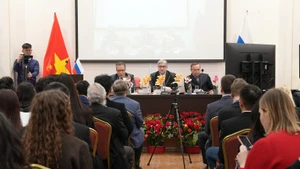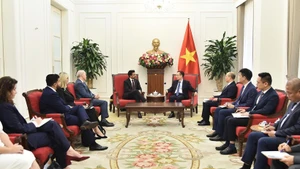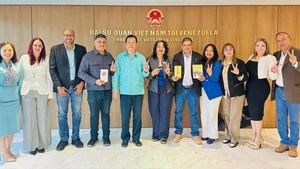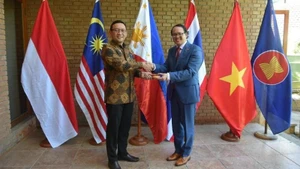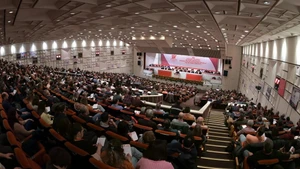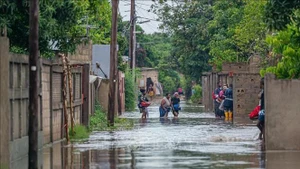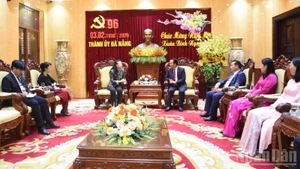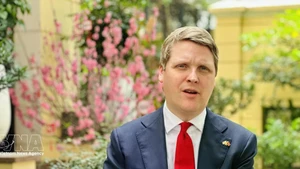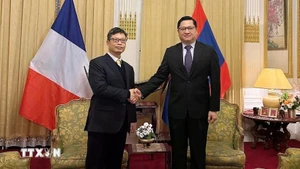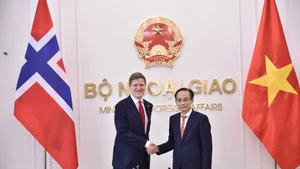In an interview granted to the press about the outcomes of Prime Minister Pham Minh Chinh’s visit to Japan from December 15 to 18, Viet highlighted Vietnam’s active participation in and important contributions to the commemorative summit, from making preparations and building the agenda to delivering remarks at the event.
PM Chinh’s speeches were profound and comprehensive as they reviewed the 50 years of ASEAN - Japan relations, and also held strategic significance as they proposed orientations for the relations’ future, the Deputy Minister said, noting that the speeches received high evaluation from other countries.
The Government leader of Vietnam highly valued the solidarity and cooperation between ASEAN and Japan, which have helped them surmount trying times and challenges over the last half a century. He also proposed three major orientations for bilateral ties to become a model, an active factor, and an important contributor to a peaceful and stable environment for common development in the region.
In particular, PM Chinh asked ASEAN and Japan to enhance strategic cooperation to build an open, inclusive, and rules-based regional architecture with ASEAN at the centre. He called on Japan to continue its active support for the countries in the Mekong sub-region to effectively cope with non-traditional security challenges, soon reactivate the Mekong cooperation mechanism, and prioritise the programmes and projects that assist with sustainable development in the spirit of leaving no one behind.
He emphasised the demand for investing in the human factor, welcomed cultural and people-to-people exchanges within the framework of the “heart to heart” partnership between ASEAN and Japan, and asked for practical cooperation projects, programmes, and plans to carry out exchanges.
Besides, the Vietnamese leader underlined four connections, Viet said, elaborating that he asked the two sides to boost economic, trade, and investment connectivity and consider this as the focus and impetus for the development of the ASEAN - Japan comprehensive strategic partnership.
He proposed stepping up the connectivity of infrastructure, especially strategic facilities; expanding the connectivity in new areas, particularly innovation, digital transformation, green economy, circular economy, knowledge-based economy, and smart agriculture, and turning these areas into new vitality for bilateral cooperation; and connecting the realisation of the Sustainable Development Goals during which they should not pursue economic growth at the expense of social progress, equality or the environment.
On this occasion, PM Chinh also attended the first summit of the Asia Zero Emission Community (AZEC), where he conveyed a message about Vietnam’s strong determination and actions to deliver on its commitments, including actively strengthening cooperation to achieve all the three targets of carbon emission reduction, energy security, and economic growth in Asia, according to Deputy Minister Viet.
Viet went on to say that the PM’s visit to Japan also concluded a year full of activities celebrating the 50th anniversary of the Vietnam - Japan diplomatic relations. It took place just two weeks after the two countries elevated their ties to the comprehensive strategic partnership for peace and prosperity in Asia and the world.
Highlighting many substantive and important results of the trip, Viet noted that first, the visit further intensified the political trust between the two countries, enhanced the PM’s personal relations with Japanese leaders, and was also the first step to implement the newly established cooperation framework.
Second, the visit was helpful in promoting substantive economic cooperation as both sides agreed to expand ties in ensuring economic security and boosting Vietnamese businesses’ engagement in Japanese firms’ global supply chains, particularly in automobile, electronics, medical equipment, and textile - garment industries. PM Kishida Fumio and other leaders of the Japanese side pledged assistance for Vietnam to successfully carry out industrialisation and modernisation and build an independent and self-reliant economy.
Third, the visit helped reinforce human resources connectivity, locality-to-locality cooperation, and people-to-people exchanges.
And fourth, it opened up cooperation opportunities in new fields like energy transition, digital transformation, and innovation. Japanese businesses showed their high interest in Vietnam’s policies and demand and vowed to foster investment ties in new areas. More than half of the documents signed between the two countries’ ministries, sectors, localities, and businesses at the bilateral economic forum covered new areas, including smart city building, green transition, digital transformation, logistics, artificial intelligence, and robotics. This could be the start of an investment influx from Japanese firms into new areas in Vietnam in the near future, Deputy Minister Viet added.


